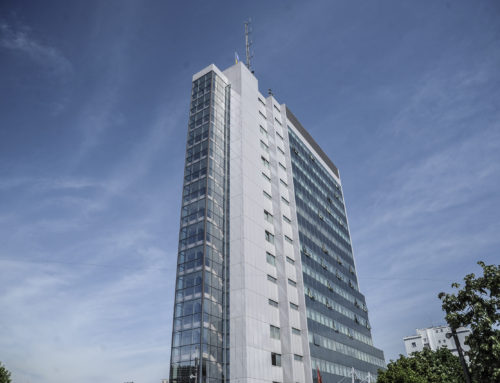Commercial arbitration may still be unpopular in the Balkans but Kosovo offers a promising forum for dispute resolution, say Ahmet Kasumi and Anjezë Gojani, president and secretary of the Permanent Tribunal of Arbitration at the Kosovo Chamber of Commerce.
Kosovo’s legislative framework
The Kosovo Law on Arbitration, passed in 2007, provides a reliable legislative environment for arbitration in the country. It is modelled on the existing arbitration laws of Germany and Austria, as well as the 1985 UNCITRAL Model Law.
One of the law’s strong points is its adherence to the compétence-compétence principle. The law excludes provisions for courts to grant interim measures, meaning that court involvement becomes relevant only in the recognition and enforcement stage.
For entirely political reasons, Kosovo is not yet a signatory to the New York Convention. However, the current law adheres to the framework of the convention and its provisions for recognition and enforcement of awards. It differentiates between domestic awards and foreign awards for recognition and enforcement purposes.
For domestic awards, the procedure is straightforward. The law does not refer to recognition of domestic awards, implying that this process is immediate and informal. Enforcement requests must be accompanied by the arbitral award or a certified copy of it. The law provides that there should be no grounds for setting aside the award.
On the other hand, the law has a lengthy provision on the recognition and enforcement of foreign arbitral awards. Although it does not expressly refer to the New York Convention, it basically follows the same grounds. This is significant as it does not impose more onerous conditions than other national laws, the Model Law, or the convention – thus ensuring a liberal approach to recognizing and enforcing foreign awards.
The institutional setting
The Kosovo Chamber of Commerce established the Permanent Tribunal of Arbitration (PTA) in June 2011, though the chamber had offered arbitration services before then.
At the time the PTA was set up, few people thought it could emerge as a modern institution for the administration of commercial disputes. Many are still sceptical – perhaps rightly so, when one compares the progress of other Balkan countries (and the workload of their arbitration centres).
The Kosovo chamber is authorised to organise arbitration services not only for its members but for other natural persons and legal entities. The PTA took advantage of the
chamber’s prominence in the Kosovo business community by inviting companies to bring their disputes to the PTA. The promotion of the PTA’s arbitration services remains one of its top priorities – in order to tackle the unpopularity of commercial arbitration in the region.
The PTA is overseen by a presidium that meets twice a year and can convene at short notice if necessary. This body decides on matters that are not provided for in the PTA’s basic documents – the Rules, the Decision on Tariffs and the Charter.
The institution is managed by relatively young and ambitious professionals but its arbitrator list includes figures with an international reputation as well as local arbitrators well known to the Kosovo community. The PTA has entered into several bilateral and multilateral agreements with European and other regional arbitration institutions and research centres to support each other in their activities. These include the multilateral cooperation agreement signed by Balkan arbitration institutions under the auspices of the German Institution of Arbitration (DIS) in April 2012 and other agreements with DIS, the Polish Court of Arbitration and the Bulgarian Court of Arbitration.
The PTA received its first case within a month of its establishment. The dispute was between a foreign and a Kosovan party and concerned non-payment of purchased goods. A sole arbitrator was appointed within a reasonable time, who resolved the case within three months – within the time limits set by the PTA rules on expedited procedure. The award was enforced by a Kosovan court.
Other commercial disputes were brought to the PTA soon after, some even involving Kosovan state-owned companies and foreign companies. Each case registered at the PTA has proved to have its own peculiarities. PTA tribunals have already dealt with a number of procedural issues, including challenges against arbitrators and challenges to their jurisdiction. Moreover, cases of non-acceptance of arbitrator mandate were indicative of the fact that general standards of independence, impartiality, and ethics are regarded as serious matters by the arbitrators.
To date, the PTA considers that the number of cases brought before the institution should not be regarded as an appropriate method of tracking its progress,
A short introduction to the PTA rules
The PTA rules are based on the UNCITRAL rules and best practices of other reputable institutions. It has borrowed some important features from the Vienna rules (on allocation of arbitrators’ fees) and the Swiss rules (on expedited arbitration procedure). Notwithstanding, the PTA has developed its own practices in dealing with cases in a more expeditious manner.
The procedural rules do not differentiate between domestic and foreign disputes. The rules “govern domestic and international arbitration of disputes in respect of a defined legal relationship, whether contractual or not, where an agreement refers to arbitration
pursuant to these Rules under the auspices of the Kosovo Chamber of Commerce…” (article 1.1).
The rules allow the parties to choose arbitrators from the PTA list. Parties may appoint arbitrators who are not on thePTA list, provided that the arbitrator has the necessary credentials and is confirmed by the PTA (article 7).
However, should the parties fail to choose an arbitrator, the PTA will be the appointing authority (article 4).
There must be an odd number of arbitrators on the tribunal, with the number to be decided by the parties. If the parties do not agree on the number of arbitrators, the appointing authority will decide whether to refer the case to a sole arbitrator or a panel of three arbitrators – depending on the complexity of the case (article 5.1).
As in any other arbitral institution, arbitrators may be challenged if circumstances exists that give rise to justifiable doubts as to the arbitrator’s impartiality or independence (article 12.1).
The initiation of proceedings begins upon the PTA’s receipt of a statement of claim. This includes the notice of arbitration, unless parties agree otherwise. The claimant must submit enough copies of the claim to be distributed to the respondent, arbitrators and the PTA (article 20).
The arbitral tribunal established to adjudicate the dispute has the power to decide on jurisdiction and other objections with respect to the existence or validity of the arbitration agreement (article 24). PTA tribunals have ruled on challenges of this nature on several occasions. An arbitration clause that forms part of a contract will be treated as an agreement independent of the other terms of the contract. If the tribunal decides that the contract is invalid, this will not automatically invalidate the arbitration clause.
During the arbitral proceedings, the arbitral tribunal may grant interim measures. Article 27 sets out conditions that must be met for the tribunal to grant the interim measure.
The PTA rules allow the arbitral tribunal to decide as amiable compositeur or ex aequo et bono only if the parties have expressly authorised the arbitral tribunal to do so (article 36).
In cases when before the award is made, the parties can agree on a settlement of the dispute, the arbitral tribunal shall either issue an order for the termination of the arbitral proceedings or, if requested by the parties and accepted by the arbitral tribunal, record the settlement in the form of an arbitral award on agreed terms. The arbitral tribunal is not obliged to provide reasons for such an award (article 37.1).
Under the PTA rules, the interpretation, correction and issuance of additional awards are regulated similarly to the rules of mainstream arbitration institutions. The parties may
request from the arbitral tribunal to give an interpretation of the award (article 38). Correction is allowed with regard to computational, clerical or typographical errors, or any other omission (article 39). Under justifiable conditions, the arbitral tribunal can make additional awards if requested by parties within 30 days (article 40).
Under the PTA rules, an award is considered approved after receiving confirmation bythe PTA. Before the award is signed, the PTA can order changes to the draft award. Naturally, the PTA will not influence the decision-making powers of the arbitral tribunal; however it can on draw the the arbitral tribunal’s attention to issues related to the merits of the dispute (article 44).
As the above shows, the major elements of a properly functioning and arbitration-friendly environment are already in place in Kosovo, making it a promising forum for arbitration as an alternative dispute resolution method.
Model arbitration clause for contracts
Any dispute, controversy or claim arising out of or relating to this contract, or the breach, termination or invalidity thereof, shall be settled by arbitration under the auspices of Kosovo Chamber of Commerce in accordance with the Arbitration Rules of the Permanent Tribunal of Arbitration.





